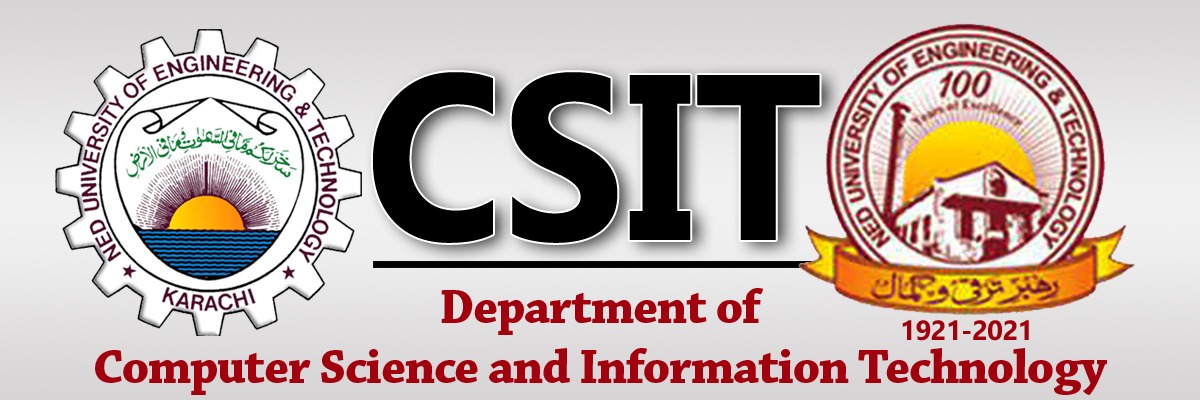Empowering Visually Impaired Students in Computer Science and Information Technology
The Department of Computer Science and Information Technology has demonstrated remarkable dedication and inclusivity in its efforts to admit disabled students, particularly those with visual impairments, into its program.
University’s infrastructure
NED University has demonstrated an exemplary commitment to fostering an inclusive and supportive environment for blind students on its campus. With a comprehensive approach to accessibility, the university has established a robust infrastructure that caters to the unique needs of visually impaired individuals. Campus buildings are equipped with ramps and elevators, ensuring smooth mobility throughout the university premises.
Accommodation facilities for blind students on campus are designed with utmost consideration for their unique needs, fostering an inclusive and supportive environment that ensures a comfortable and enriching university experience. These facilities are equipped with features that promote accessibility, independence, and a sense of belonging. Rooms are spacious, allowing for easy mobility and navigation, and furnished with careful attention to safety and convenience.
Investing in Adaptive Technologies for Enhanced Accessibility
Recognizing the importance of equal educational opportunities, the department has undertaken numerous initiatives to ensure that visually impaired students can be included in and benefit from the academic experience.
Firstly, the department has decided to make substantial investments in adaptive technologies and software, allowing visually impaired students to access course materials, programming tools, and digital resources with ease.
In order to teach these students in an inclusive environment, a device (braille note taker shown in figure) must be put up. By attaching this device to their laptops, these students can listen to the digital notes that the teacher has provided. With this gadget, students can read books, write reports, complete their assignments, send emails, and share documents in class. The cost of this device is approximately $4000.

Fostering Empathy and Inclusivity: A Welcoming Community for All
Beyond technological advancements, the department has established a culture of empathy and understanding, fostering an inclusive community where all students are valued for their unique strengths. Through these proactive measures, the Department of Computer Science and Information Technology is setting a commendable example for educational institutions, creating a space where disabled students can thrive academically and contribute meaningfully to the field of technology.
Senior Faculty Engagement: Assessing Feasibility and Personalizing Support
The Department of Computer Science and Information Technology has gone above and beyond in this regard by sending senior faculty members to visit the Ida Rieu College For Blind & Deaf. This proactive step aimed to engage directly with visually impaired students, understand their unique needs, and assess the feasibility of their admission into the program. During these visits, faculty members interacted with the students, gaining valuable insights into the challenges they face and their aspirations in the field of technology.
This hands-on approach has enabled the department to tailor its resources and support systems effectively, ensuring that visually impaired students are provided with a nurturing and empowering learning environment. By fostering personal connections and actively seeking feedback from the students themselves, the department has demonstrated a genuine commitment to inclusivity and accessibility, making strides toward breaking barriers and promoting diversity within the realm of computer science and information technology education.

Overall, the visit to the Ide Rieu Institute for Deaf and Blind has been an eye-opening experience, revealing the remarkable strengths and potential of the visually impaired students. Witnessing their determination, passion for technology, and eagerness to learn has reinforced the belief that with the right accommodations and support, they can thrive in the BS (Computer Science) program at NED University.
The department's investment in adaptive technologies and collaboration with accessibility experts will undoubtedly create a conducive learning environment tailored to the specific needs of these students. Moreover, the culture of empathy and inclusivity fostered by the faculty will further facilitate their successful integration into the academic community. By recognizing the unique talents and contributions of visually impaired students, NED University is taking a significant step towards creating a more diverse and equitable future in the field of computer science and information technology. The journey of empowering these students is bound to enrich not only their lives but also the entire educational ecosystem.
